This post is part of The Other Equestrian Athlete series.
Body image and weight are tricky beasts that go hand in hand. Particularly in sports with an aesthetically judged aspect such as gymnastics. In the equestrian world it is further complicated by the issue of horse welfare. Additionally, as the interest in rider fitness and nutrition increases my guess is that body image dissatisfaction will only increase. As a rider and a dietitian I have strong interest in this area. I’ve long wanted to tackle this image on my blog, and today is the day I have finally been able to get all my thoughts on this matter straight.
Before we go any further, I have to acknowledge that YES, I am straight sized and that this does afford me certain privileges. For instance, I can easily buy riding clothes off the shelf and no one has ever told me to loose weight because I might be hurting my horse. I am also not judged if I choose a can of coke and a burger for lunch at competition or clinic.
What is body image?
The National Eating Disorders Collaboration defines body image as, “the perception that a person has of their physical self and the thoughts and feelings that result from that perception.” They go on to explain that the feelings which impact upon body image are influenced by individual and environmental factors. Which brings me to my first point, Body image is complicated by our cultural body ideal of thinness. We subtly are sold the popular lie that we can and will feel good about our bodies and the way that we look if we simply loose that weight or tone up. We are also led to believe that better lives are waiting for us, all we need to do is show up in a smaller body. That we will feel better about ourselves, be more confident, get more money, our dream job and love. In the horse world the lie we are also sold is more subtle. We are lead to believe that we would reach Grand Prix, international competition or win the medal finals if we were in a smaller body.
The NEDC go on to tease out the four key aspects of body image, the way a person see’s, thinks about and feels about their body, and the actions or behaviors that a person engages in as a result of their body image.
Weight and health
There is also the argument of health, however an increasing awareness of the limitations of weight and body mass index have brought this argument into question. The fact is that we have far less control over our weight than we have been lead to believe, in the long term at least. Research shows that for the majority of people maintaining weight loss beyond two years is not possible, even when the person continues on a restricted calorie intake and /or high levels of exercise. The weight loss industry didn’t achieve a net worth of nearly $60 billion a year through helping people achieve long term weight loss. (1)
The research certainly shows that health improvements are associated with weight loss. It is essential to remember that associations and correlations are different to causation. Once again there is emerging evidence which suggests that the health benefits such as reduced blood pressure, improved glycaemic control are likely to be related to changes in behaviour rather than the weight loss itself. As a dietitian this is what I focus on in my work with people – changing behaviours. (1)
I’m all for people wanting to improve their fitness levels and eat in a healthier way, however there is a fine line between interest and awareness and obsession. It is well recognised that dieting is one of the biggest risk factors for developing an eating disorder. But also over concern with weight and shape takes our focus away from the things we really care about.
Horse Welfare
The question of how much a horse can comfortably and safely carry has long been the topic of conversation in the equestrian world. There is emerging research around the impact of rider weight on horse health and soundness. These seem to indicate that horses can only comfortably carry a certain percentage of their weight. However from the information available publicly it is not clear what confounding factors have been considered. Additionally, the small number of studies in this area, mean that absolute conclusions cannot be drawn at this stage.
I would argue that we cannot simply complete a mathematical equation which will tell us if a rider is an appropriate weight for their horse, and that a wide range of factors need to be considered, including:
- Rider fitness
- Rider skill level
- Horse fitness
- Intensity of training and competition
- Training and competition surface
- Fit of tack
- Horse breed and build. For instance one study found that, “horses with wider loin and thicker cannon bone circumference became less sore when carrying heavier weight loads.”(2)
Importantly, ALL of the above factors can be altered and improved without a rider needing to pursue weight loss.
So what can you do to start to improve your body image?
Here are some are some more practical strategies that may help you:
- Engage in activities that give you a sense of self worth or accomplishment outside of your appearance. For me, this is where riding comes in!
- Go on a social media detox! Remove all media which make you feel bad about your body.
- Immerse yourself in images of a variety of different bodies small, large, short, tall, different ethnicities and so on.
- Appreciate the incredible things that your body does for you every day. You things like breathing, pumping blood around your body and much more and that’s just what it does to keep you alive.
- Stop talking about other people’s bodies in a negative way. You’ll be surprised how this will flow through into the way you talk about your own body.
- Stop engaging in diet and weight loss talk.
- Invest in comfortable well fitting clothing, particularly riding clothes.
Additional strategies can be found at https://www.nationaleatingdisorders.org/learn/general-information/ten-steps
Stay tuned for part 2 where I talk to fellow riders about their experiences with body image and weight.
Please note, this post is informational only. It is not intended to diagnose and does not replace individual advice from a suitably qualified professional.
References:
L Bacon and L Aphramor. Weight science: Evaluating the evidence for a paradigm shift. Nutrition Journal. 2011. 10: 9. https://nutritionj.biomedcentral.com/articles/10.1186/1475-2891-10-9
DM Powell, K Bennett-Wimbush, A Peeples, M Duthie. Evaluation of indicators of weight-carrying ability of light riding horses. Journal of Equine Veterinary Science. 2008. 28-33. DOI:https://dx.doi.org/10.1016/j.jevs.2007.11.008
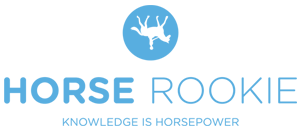
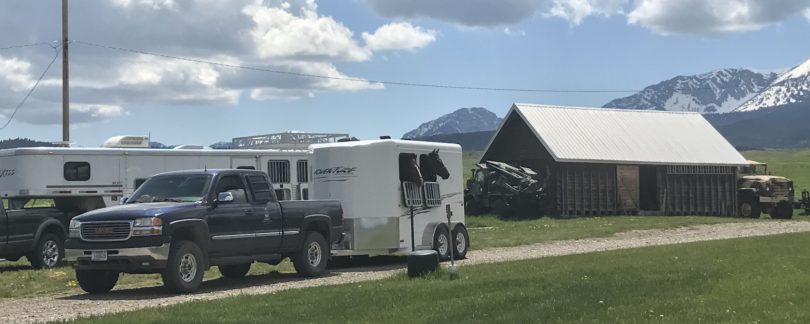
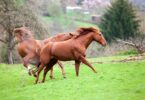
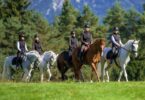
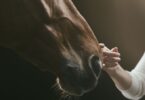
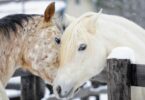
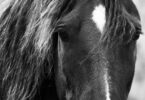
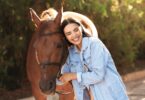
Great Post. Important issue to discuss! X
Thank you so much Catherine, it’s a topic very close to my heart
I started riding again after having children. Needless to say my confidence level and body images were down the tubes. The fit of breeches does not help curvy girls! However, while I still have off days, being at the barn, exercising under saddle or on the ground, and owning what makes me unique has really helped. Great post!
I can only imagine what it would be like to experience the changes in your body that come with having children, but I am so glad that you were able to push through your discomfort to get out and enjoy something that is special to you.
Thank you soooo much for addressing this. I have always struggled with weight and never felt good enough riding with other young girls who looked like the ideal. I submitted myself to have less and be less at the barn because I did not feel deserving enough to set my eyes on the flashiest or most high powered horse. I was once told that a person who let me ride her horse for years, that she would not sell him to me unless I lose weight. I was not heavier than many men who ride. I was devastated because this was my first attempt to go after the horse that I never believed I could have. Not much later, I was fortunate to have a friend who nearly gave me her retiring hunter jumper and she has made me the happiest horse owner in the world. She never once questioned my weight and my horse has never complained, even though I did lose weight after the fact. The point is that you acknowledge the source of great suffering for me since childhood and I am truly grateful. Thank you!
Jenny, thank you so much for sharing your story. I am so sorry to hear that your experience hasn’t always been so positive.
I think that when people say that someone is too heavy to ride a particular horse that it comes from a well intentioned place. HOWEVER, I also believe that it is misinformed and misses out on so many other details that are so much more important in determining the right horse and rider combination.